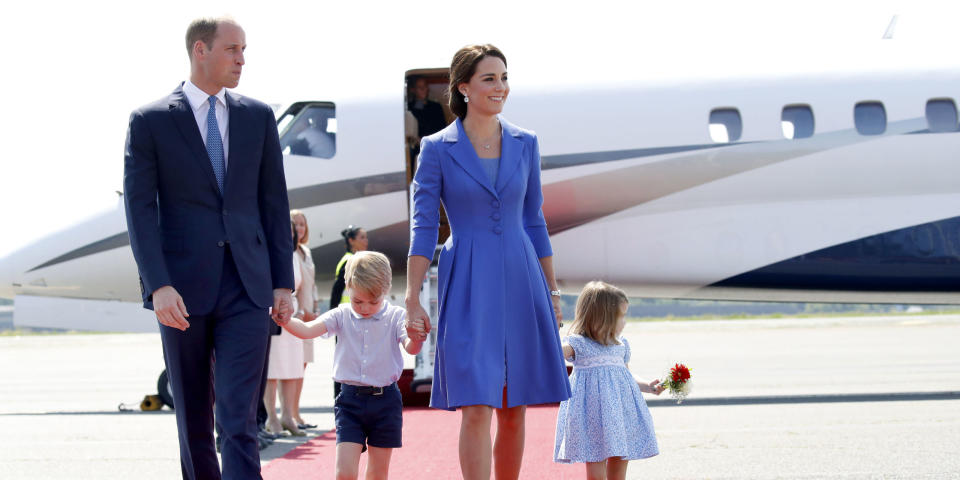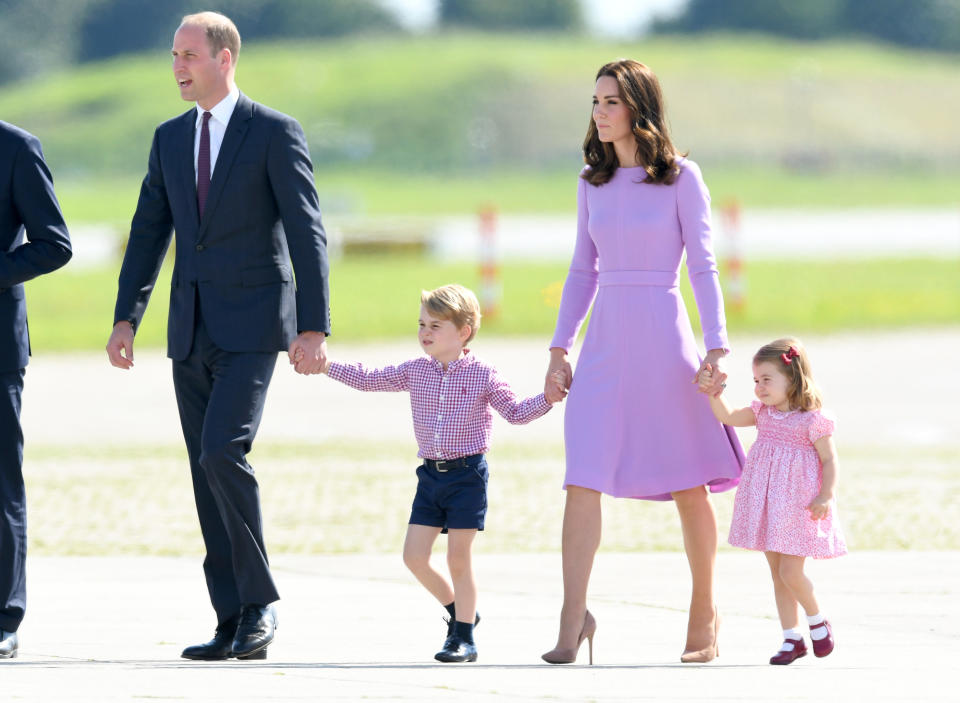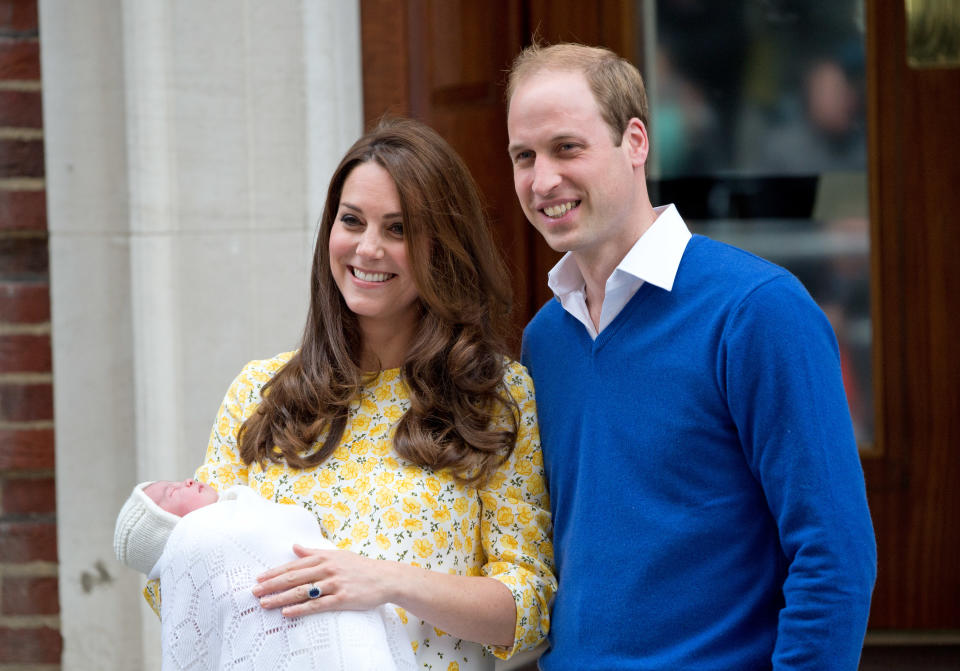This Is What Kate Middleton Will Likely Name Her Baby

A royal baby is coming! We repeat, a royal baby is coming! The Duke and Duchess of Cambridge officially announced the upcoming arrival of their third child on September 4, 2017, and the world could not be more excited. While Kate Middleton isn't due for another two months, here's everything we know so far about the Prince George and Princess Charlotte's future playmate.
The baby will arrive in April.
Kensington Palace confirmed Kate's due date falls in April, although the official tweet didn't specify anything further. That means the baby may share a birthday with another important royal: The Queen was born on April 21, 1926.
The Duke and Duchess of Cambridge are delighted to confirm they are expecting a baby in April 2018. pic.twitter.com/jOzB1TJMof
- Kensington Palace (@KensingtonRoyal) October 17, 2017
Potential names include Mary and Arthur.
Betting sites have carefully adjusted the odds on the future royal's official moniker. Alice (the name of Queen Victoria's second daughter and Prince Philip's grandmother) and Elizabeth initially jumped out as favorites for a girl, and male picks first leaned towards a James, Albert, or Alfred.
However, the most recent reports favor Mary at 7/1 (slashed from 20/1) and Albert and Arthur now both come in at 12/1. All of these suggestions follow the royal tradition of honoring past monarchs and relatives. Of course, royal babies usually receive at least three names, but no surnames.

She's probably not expecting twins.
While the multiple birth rate in England and Wales hovers around 1 or 2 for every 1,000 pregnant women, some tabloids claim that the Duchess is of one of them. Life & Stylereports that not only is Kate expecting twins, but she already know the genders. Their anonymous source says that she'll double her brood with a pair of identical girls, but wants them to "be seen as individuals and allowed to develop their own personalities."
However, a recent comment made by Prince William seemed to bust this rumor. "Twins? I think my mental health would be tested with twins," he joked at a charity event in February. "Two is fine. I don't know how I'm going to cope with three. I'm going to be permanently tired."
The Duchess suffered from hyperemesis gravidarum again.
Just like her previous two pregnancies, Kate Middleton experienced an extreme form of morning sickness known as hyperemesis gravidarum (HG) during the first few months. Symptoms include severe vomiting, constant nausea, dehydration, and weight loss. The condition afflicts roughly 2% of all expecting mothers, and it put Kate in the hospital during her first pregnancy.
Prince William previously revealed that they've tried at least one popular home remedy to help curb the nausea: ginger biscuits. But while the spice-filled cookies sound like a delicious treat, they didn't helping Kate as much as they hoped. "There's not much ginger can do to stop that," he said of her illness. "We've done all that."
While she experienced some serious discomfort during the fall, the Duchess is now back to her usual smiley self, making plenty of public appearances and taking trips to Norway and Sweden.
The birth might take place at home.
In addition to Prince George and Princess Charlotte, both Prince William and Prince Harry came into the world at the Lindo Wing of St. Mary's Hospital in London. The spot is known for its extreme privacy - even Amal Clooney gave birth there!
But despite royal history, the rumor mill is churning out speculation that Kate Middleton would like to give birth at Kensington Palace this time around. Instead of facing hundreds of paparazzi outside of the maternity ward, she could introduce the baby to George and Charlotte within the privacy of her own home.

In fact, an unnamed source claims that Kate even requested to have a home birth the last time she was pregnant. "The Duchess knew it wasn't possible for her first baby to be born at home, but she asked for a home birth for the second," the anonymous informant told the Daily Mail. "Officials and doctors thought it too risky. There was concern and in the end she decided against it."
But since her last two births went off without a hitch, insiders believe the Duchess has a better chance of getting her wish this time around.
The new heir will change British succession history.
For the first time ever, the sex of the royal baby will not impact who's next in line for the throne. Thanks to the passage of the Succession to the Crown Act in 2013, male heirs don't take precedence over their sisters. That mean a baby boy can't "bump" Princess Charlotte from her spot at #4. However, Prince Harry will move down to sixth in line with the arrival of a new niece or nephew, along with the rest of the extended royal relatives.
Related Video:
You Might Also Like

